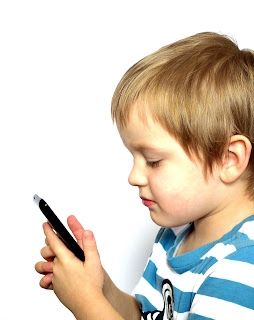REACHING ALL CHILDREN WITH MOBILE TECHNOLOGIES. Reaching
students in the classroom Educators often face a love/hate relationship with
technology in their classrooms. On one hand, computers and the Internet can
bring a wealth of information to a lesson and help build essential digital and
media literacy skills; on the other hand, hardware and software can be fickle,
hard to maintain and update, and disruptive to the flow of a day. Rima Shore
(2008) recently reported on the difficulties inherent in integrating technology
in the classroom: Educational technologists say that it has been especially
difficult to integrate technology into elementary school classrooms, despite
the availability of good applications and tools for younger children … “In a
really good elementary classroom,” said Jim Pollard of Intel’s Education Group,
“the teacher is continually adjusting activities to kids’ emerging interests
and needs.
There’s an organic flow. Technology can be disruptive in that
environment. You have to stop and turn on the machine, and in elementary
schools that’s almost always problematic. The network may be slow, or you need
to reboot.” The portability of mobile technology may be an attractive choice in
the classroom for several reasons. Compared to desktops, mobile technologies
can stay close to the child. Mobile devices can be used anywhere the child is,
making unnecessary a special trip to the computer lab or a return to the desk.
In addition, with the price of mobile technologies decreasing, a one-to-one
paradigm that encourages personalization and self-paced learning may become
more possible. The ability of mobile learning to accommodate many different
needs and learning styles can also make it an attractive choice for teachers.
Studies have shown that a range of learners can benefit from
mobile learning: “mature-aged, gifted, international and remote learners, as
well as those with cognitive, behavioral or social problems, or with physical
or mental difficulties” (Savill-Smith and Kent, 2003; Strom and Strom, 2002;
Rodríguez, Nussbaum, Zurita, Rosas, and Lagos, 2001). Mobile learning can also
support a wide variety of teaching methods: real-time, synchronous and
asynchronous discussions using voice, text, and multimedia messaging.











No comments:
Post a Comment